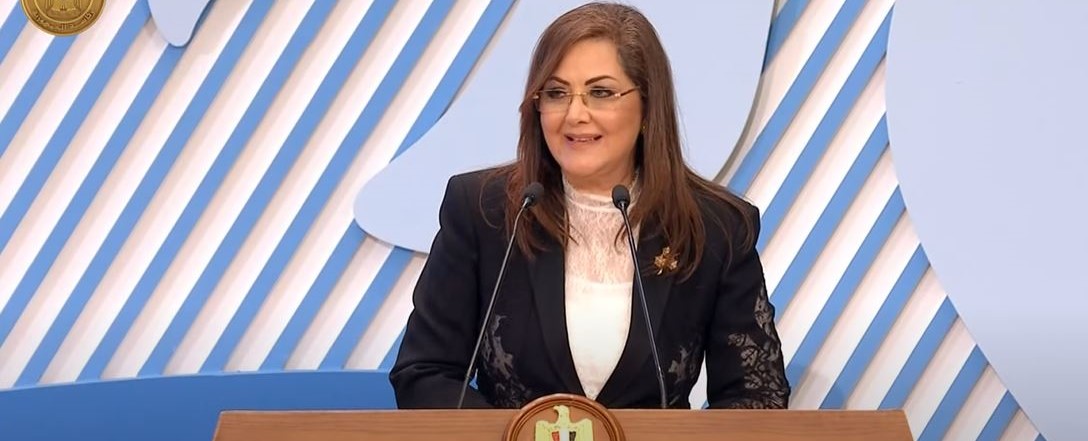On the sidelines of ISDB2023AM: Egypt’s Planning Minister meets IITFC CEO to identify means of enhancing cooperation

13 May 2023
The Minister of Planning and Economic Development who is acting also as Egypt’s Governor at the Islamic Bank for Development (IsDB), H.E. Dr. Hala El-Said met recently with the Chief Executive Officer (CEO) of the International Islamic Trade Finance Corporation (ITFC) who is acting also as CEO of the Islamic Corporation for the Development of the Private Sector (ICD) Eng. Hani Sonbol to discuss cooperation issues between the Arab Republic of Egypt and the ITFC.
The aforementioned meeting took place on the sidelines of the IsDB annual meetings, held from 10-13 May under the slogan, "Leveraging South-South Partnerships to Fend Off Crises".
During the meeting, Dr. Hala El-Said reviewed the most notable successes achieved in the areas of present cooperation between Egypt and the ITFC and the position of existing and ongoing operations in favor of Egyptian institutions.
She noted that the updated framework agreement (signed in 2018) entered into force after its renewal for five years in June 2022, with a value of $6 billion, pointing to the successful conclusion of the work of the first phase of the Women in International Trade project in Egypt, which is funded within the framework of the second phase of the Assistance for Trade Initiative for Arab Countries (AFTIAS 2) program run by the Foundation, in October 2022, and preparations are underway to launch the second phase of the project.
El-Said praised the availability of financing operations to the concerned Egyptian authorities, according to the signing of the Corporation’s annual work program with Egypt for the year 2023, to provide financing solutions for $1.5 billion, through the signing of this program with both the Egyptian General Authority for Supply of Commodities and the Egyptian General Petroleum Corporation, to support the efforts of the Egyptian state and provide basic food commodities and petroleum products for citizens. This brings the total financing portfolio to approximately $17 billion
El-Said welcomed the signing of the special cooperation agreement between the Egyptian International Trade Academy, the International Islamic Trade Finance Corporation, the Trade Training Center of the Ministry of Commerce and Industry, and the Egyptian Exporters Association during this year's annual meetings of the Bank Group within the framework of the second phase of the Aid for Trade Initiative for the Arab States (AFTIAS 2).
El-Said announced the launch of the second phase of a program aiming to train and qualify 50 women, in the handicrafts and heritage field, to export their products, in cooperation with the Micro, Small and Medium Enterprises Development Agency (MSMEDA) in light of the current evaluation of the outputs of the first phase, to confirm the tangible results in terms of the contribution of women-owned enterprises participating in the program to Egyptian exports, and international exhibitions which increase the added value of the project given the signing of the first phase of the program between the ITFC, and the Enterprise Development Authority in October 2022 in Cairo during the closing ceremony of the first phase of the Women in International Trade Program in Egypt. Furthermore, the Foreign Trade Training Center held two training programs with 53 trainees from 14 governorates. The second phase incorporated 33 participants.
El-Said praised the outcomes of the third annual program executed activities for the benefit of the Arab Republic of Egypt, which was signed between the Ministry of Trade and Industry, ITFC, the Islamic Corporation for the Insurance of Investment and Export Credit (ICIEC), and the African Bank for Import and Export (Afreximbank) during the annual meetings of the Islamic Bank Group. For development in Sharm El-Sheikh in June 2022; aiming to increase economic integration and support sustainable growth in all Arab and African countries by encouraging trade and investment.
She noted that within the program's framework, an Egyptian company's trade mission was dispatched to Tunisia last December. The mission attended B2B bilateral meetings between exporters and importers from Africa in the pharmaceutical and supply sectors. On the sidelines of the fourth meeting of the Board of Governors of the Arab-African Trade Bridges Program, a trade mission was organized to the Democratic Republic of the Congo last March in the field of engineering industries, as the Congo is one of the top 10 African markets for importing engineering industries.
In this light, El-Said explained that coordination is currently underway to send a delegation of Egyptian companies to participate in the meeting between exporters and importers of food industries in Morocco during May 2023, and it is scheduled to carry out a trade mission to the State of Iraq, in cooperation with the Egyptian Commercial Representation Authority, in June 2023, aiming to meet several businessmen in Iraq and to visit business gatherings in the field of engineering industries. Moreover, it is intended to organize missions to Algeria during the coming period, in the area of printing and packaging. In addition, it is preparing to organize Egypt's annual energy exhibition for the electrical and energy industries sector.
El-Said highlighted the existing areas of cooperation between Egypt and the International Islamic Corporation for the Private Sector (ICD), looking forward to strengthening the means of cooperation between the Corporation and The Sovereign Fund of Egypt (TSFE), the state’s investment fund, in line with the axes of the National Program for Structural Reforms, the State Ownership Document, and other national plans and strategies aiming to encourage the Egyptian private sector, within the framework of developing an integrated strategy that clarifies mechanisms to support the activities of the Egyptian private sector through its various financing services, representing a roadmap for cooperation between the two sides in this field.









